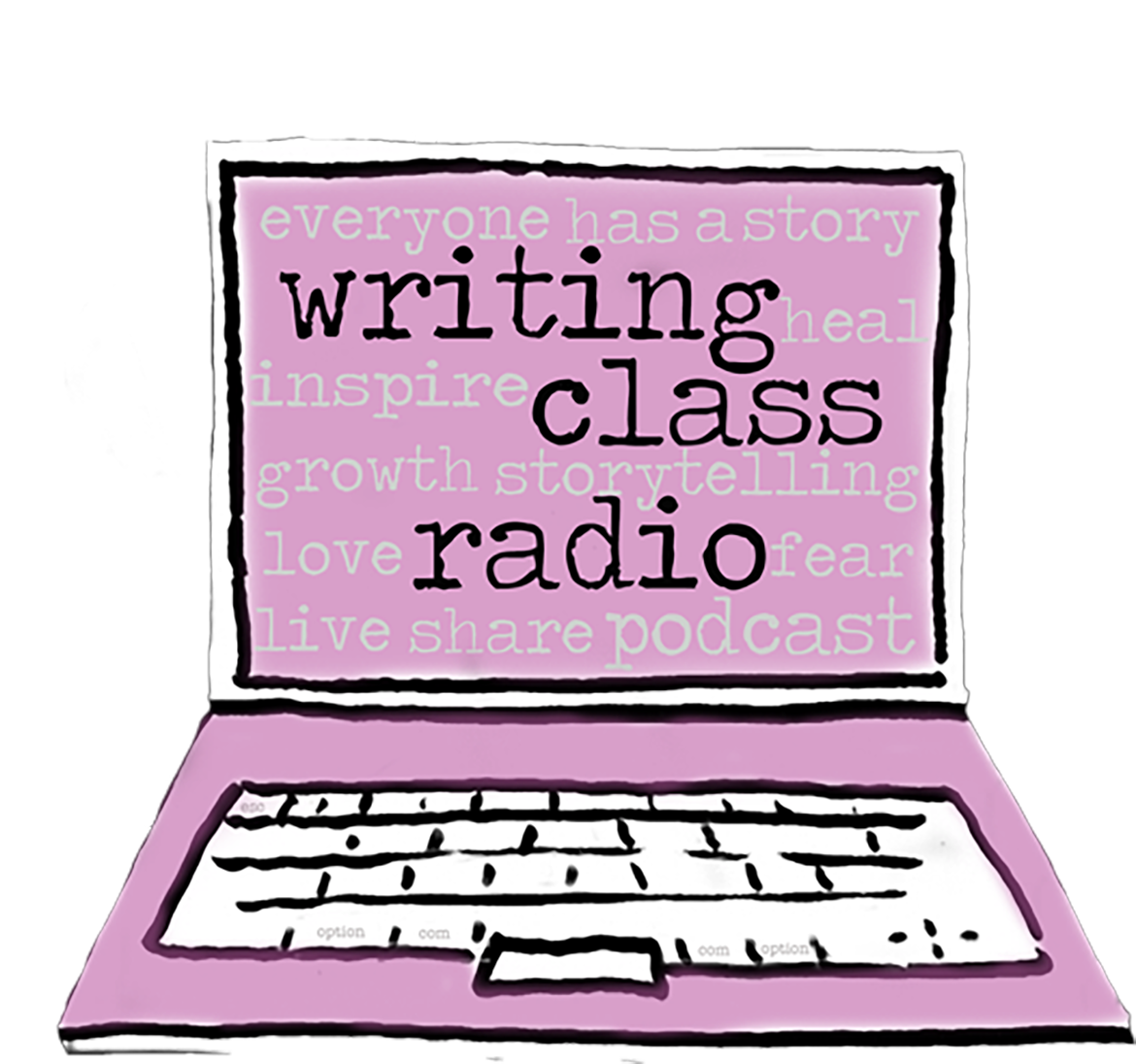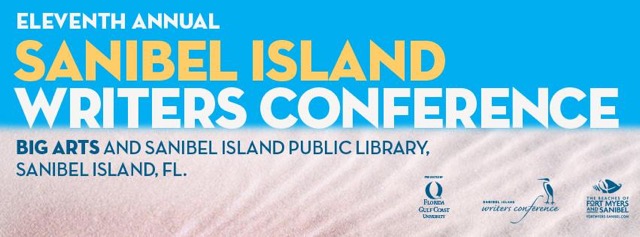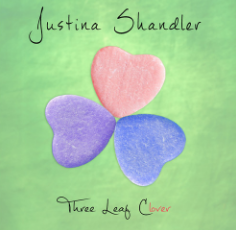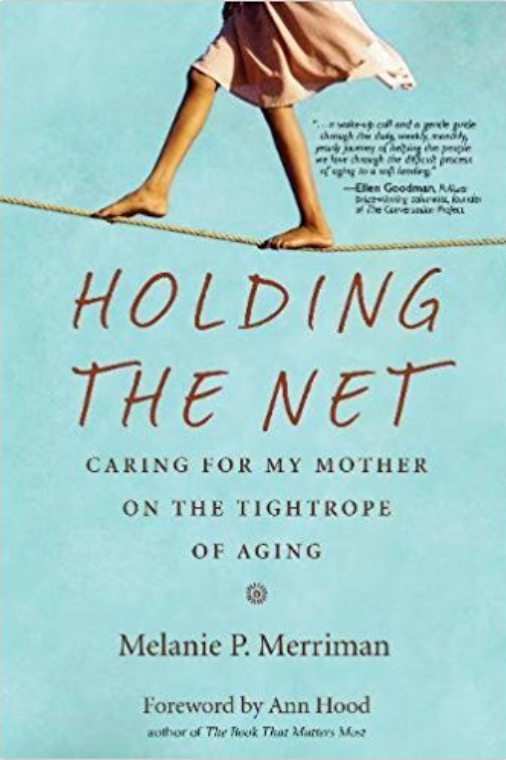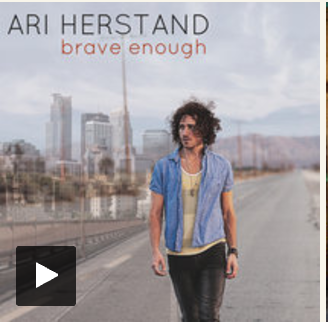Show Notes Episode 149: How to Make Your Writing More Personal (in any Field)
/On this episode, we bring you a story written by Dr. Jane Marks, a conservation ecologist and professor of Aquatic Ecology at Northern Arizona University (NAU).
Jane came to Writing Class Radio with the goal of making her academic writing more personal. What she didn’t realize is that writing class, specifically writing personal essays, forces the narrator to go deep and ask the question WHY? Why am I writing this? Why does anyone care? Why is this important to me? Why do I care so much about what people think?
Jane’s story is called, Hating Brussel Sprouts Is Not My Biggest Problem. It could have been called The More Things Change, the More Brussels Sprouts Stay the Same. She wrote this essay in First Draft, worked on it in Second Draft, and when Jane felt she had answered the whys, she submitted it to the podcast.
Jane has been taking classes with Writing Class Radio for almost two years. Until we read her bio, we had no idea what a badass she is. Jane TOTALLY downplays her brilliance!
Jane Marks was featured as the lead scientist in the PBS documentary, A River Reborn: The Restoration of Fossil Creek, narrated by actor Ted Danson and she co-produced the video documentary Parched: The Art of Water in the Southwest. For more Dr. Jane Marks, go to https://ecoss.nau.edu/team/jane-marks/
Writing Class Radio is hosted by Allison Langer and Andrea Askowitz. Audio production by Matt Cundill, Evan Surminski and Aiden Glassey at the Sound Off Media Company. Theme music is by Emia.
There’s more writing class on our website including stories we study, editing resources, video classes, writing retreats, and live online classes. Join our writing community by following us on Patreon.
For $35/month you can join our First Draft weekly writers groups. You have the option to join Allison, Tuesdays 12-1 ET and/or Zorina Frey Wednesdays 7-8pm ET. You’ll write to a prompt and share what you wrote.
Join the community that comes together for instruction, an excuse to write, and most importantly, the support from other writers. To learn more, go to www.Patreon.com/writingclassradio. Or sign up HERE for First Draft for a FREE Zoom link.
If you would like a transcript of the episode read below:
Allison Langer 00:00:07
Hi, I'm Alison Langer.
Andrea Askowitz 00:00:09
I'm Andrea Ascawitz, and this is writing class radio. You'll hear true personal stories and learn how to write your own stories. Together, we produce this podcast, which is equal parts heart and art. By heart, we mean the truth in a story. By art, we mean the crowd writing. No matter what's going on in our lives, writing Class is where we tell the truth. It's where we work out our sheet. There's no place in the world like writing class, and we want to bring you in.
Allison Langer 00:00:39
So today we're bringing you a story written by Dr. Jane Marks, a conservation, ecologist and professor of aquatic ecology at Northern Arizona University. Jane has been taking classes with Writing class radio for almost two years, and until I read her bio, I actually had no idea what a badass she was.
Andrea Askowitz 00:00:59
Nope.
Allison Langer 00:01:00
She totally downplays her brilliance. Yep, I think she dumbs it down for us.
Andrea Askowitz 00:01:05
Yes. Thank you. Thank you, Jane. Thanks. Thank you.
Allison Langer 00:01:09
Jane came to writing class with the goal of making her academic writing more personal. What she didn't realize is that writing class, specifically writing personal essay, forces the narrator to go deep and ask the questions, why? Why am I writing this? Why does anyone care? Why is this a thing for me? Why do I care so much about what people think? Jane wrote this essay in first draft, worked on it in second draft, and when she felt she had answered the whys, she submitted to Writing class radio. We'll be back with Jane's story after the break. We're back.
Andrea Askowitz 00:01:48
I'm Andrea Askowitz and this is writing class radio. Here is Dr. Jane Marks with her story called hating Brussels. Sprouts is not my biggest problem.
Dr/.Jane Marks 00:02:01
The foulst place on the planet is the center of a Brussels sprout. As a graduate student 25 years ago, I was eating dinner at my advisor, Mary's house. I had earlier express disdain for Brussels sprouts, and she, like many, said no. You haven't tried my Brussels sprouts. Not again, I thought. I can't tell you how many people have said, you haven't tried my Brussels sprouts. Mary often treated graduate students in her lab to home cooked meal. Eight of us at her dining room table passed platters of chicken and pasta. She brought in a pan from the kitchen. Jane, these are for you. They're delicious. Sauteed and caramelized onions. I'm not going to like them, I warned. Just try one, she said, putting three on my plate. Even caramelized onion can't mask the odor of a Brussels sprout. I was in the biology program at Berkeley, where your relationship with your advisor was important. Faculty advisors funded your research, helped you publish papers, and wrote letters of recommendation. If I didn't eat or, Brussels sprouts would have jeopardized my career, I looked on my plate, and all I could see were three vomit green wrinkly balls. Every time I looked down, the sprouts had expanded their territory. The outer leaves were sloughing off, making contact with the chicken breast. The juices were seeping into the crevices of the pasta spirals. My entire dinner was under siege. I tried to swallow one hole with water like an aspirin. I put it as far back in my mouth as I could, hoping to avoid direct contact with its center. But the center asserted itself, shooting a burst of bitterness from my throat back into my mouth. I almost puked. There were two more. Mary had a large pet box turtle named Ishmael who lived in an aquarium in the dining room. I haven't said a load of ishmael yet, I said, getting out of my chair and standing over the aquarium. Taking a break mid meal to engage in conversation with a reptile is not that uncommon for a biologist. I waited until Mary went to the kitchen. As soon as she pushed through the swinging door, I grabbed the Brussels sprouts from my plate and hid them under the rocks that furnisheshma's home. Using his usual food lettuce as camouflage, I made it back to my seat before the kitchen door swung open and she reentered the dining room. No one seemed to notice. When Mary cleared my plate, she said, jane, you ate your Brussels sprouts? Didn't I tell you they just need to be cooked right? A few years ago, we got a Vitamix and superfood smoothie recipe. My husband Bruce loves to make smoothies. The recipes involve complex ingredients like rosemary, spire, lena or hemp seeds. He often leaves the glass in the refrigerator for me. One morning, there was a smoothie that looked like a French vanilla milkshake. I took a sip and gagged. I figured it was too close to toothpaste and made soft boiled eggs. Being the open minded person that I am, I gave it another try. A few hours later, I took a micro sip that provoked a macro gag. I couldn't place the flavor and wondered if he threw the compost in the Vitamix. Later, he asked how I liked the smoothie. Disgusting. What was in it? Stuff. What stuff? He finally confessed that it had raw Brussels sprouts. He likes to tell the story because he, too, is a scientist and thinks the blind taste test provides objective evidence that I hate Brussels sprouts. Isn't asking my opinion and listening to my response to evidence enough? I have a divorce lawyer on Speed Dal if he tries that stunt again. Brussels sprouts champions often promote their health benefits. A single serving provides 200% of the daily requirement of the bone strengthening vitamin K. Who needs 200% of any vitamin? Sometimes I push food on others, but it's different. My husband Bruce and I were at a restaurant for dessert. I said, I'll get the apple crisp. You could get the molten chocolate cake. No, thanks. He said you go ahead. I ordered the apple crisp with two spoons. When the waiter asked about ice cream, I said, we'll have an order of molten chocolate cake, too, on the side. How can anyone enjoy dessert if the person across the table is smugly abstaining? When my father in law does not want my homemade eggplant parmesan, my initial reaction is that he must be wrong about eggplant. How can anyone not like eggplant? Then I wonder if it's me he doesn't like. Times have changed since I pond my Brussels sprouts on Ismail, who lived another 20 years. A long life for a turtle. Maybe it was the vitamin K. Brussels sprouts have had a revival. Mary retired. Now I'm the advisor. I have half a dozen graduate students working under my direction. I often meet my students at a brew pub and buy the first round, passing on the generosity I learned from Mary. A few weeks ago, I was enjoying an IPA when a server brought a platter of brussels sprouts. Brussels sprouts at a ru pub. There ought to be a lot. Who ordered this? I asked. Chill out, Jane, said the student who put in the order. I would never have said that to Mary. I swallowed that putrid green ball for the sake of my career. Or did I? These students don't seem to care about kissing my ass. They seem to know I judge students on their work alone. Maybe Mary did, too. Let's rearrange the table, I said. The Brussels sprouts and brussels sprouts people can go to one end and the civilized people to the other. All the students responded at once. Stop busting us around. It's happy hour. You go to another table. They're delicious. Just try one.
Allison Langer 00:08:20
Okay. So I just want to say, this little Brussels sprouts story tells us so much about the narrator, and I just thought that was super cool.
Andrea Askowitz 00:08:31
Are you saying one dark green wrinkly ball told us so much about this narrator?
Allison Langer 00:08:38
Yeah. And you can't tell that our previous episode was about a manasha TWA because now we're totally sexualizing every story.
Andrea Askowitz 00:08:46
Yeah, she's the one who called it a green wrinkly ball. But, yeah, we learned so much about her.
Allison Langer 00:08:52
It's really cool because I don't remember if this came from first draft, but I think write about a food you dislike or something like that. And these prompts always seem like, why.
Andrea Askowitz 00:09:02
Are we doing this?
Allison Langer 00:09:03
What is that going to do? And it's always trying to go deep, deep, deep to try to figure out why is it you hate these things, and how has the hatred of this one particular food shaped your life? Do you have one?
Andrea Askowitz 00:09:16
A food I hate?
Allison Langer 00:09:17
Yeah.
Andrea Askowitz 00:09:17
I hate liver. I hate you. I know. Gross. I hate Spanish olives.
Allison Langer 00:09:24
Hate olives. I hate capes, too.
Andrea Askowitz 00:09:27
I do remember that I was on a date. This is before Vicki and this woman made dinner for me, and she made this salmon with capers.
Allison Langer 00:09:34
Did you eat it?
Andrea Askowitz 00:09:35
No, because I was like and before that, I was like, oh, yeah. I eat everything because I think of myself as someone who eats everything, so okay, that relationship didn't last.
Allison Langer 00:09:45
I hate eggs. I hate olives. But I hate eggs because people don't care if you don't eat their olives, but if you don't eat eggs like, my dad is always like, oh, you want me to come over and make some eggs? I'm like and my kids are like.
Andrea Askowitz 00:09:56
Grandpa mom is 55.
Allison Langer 00:09:59
He never liked Dangs. And he's like, oh, okay. But he asks all the time. It's like, one day.
Andrea Askowitz 00:10:05
Well, that's a different story. Why can't he remember? Yeah, but he used to cook them.
Allison Langer 00:10:09
For me when I was sick, and I didn't want to hurt his feelings, so I remember trying to down him kind of like the aspirin, like just open and swallow and, like eating a fish hole or something.
Andrea Askowitz 00:10:19
Did it rot you out when the narrator didn't brush her teeth or did brush her teeth and then thought it was just her toothpaste, so then she made eggs.
Allison Langer 00:10:27
It's the smell. No, but these things people don't understand. And I've said it just like we always think that yeah, my Brussels sprouts are going to love my Brussels sprouts.
Andrea Askowitz 00:10:38
I hate mushrooms.
Allison Langer 00:10:39
All mushrooms, like, even cooked and sauteed and everything.
Andrea Askowitz 00:10:41
Yeah, and they stink so bad.
Allison Langer 00:10:43
Mushrooms have no smell.
Andrea Askowitz 00:10:45
Yeah, they do. They smell like butt. And I know what butt smells like, and so do you. Everyone knows what butt smells like. I'm telling you, it smells. I don't like it. So it's sort of like the way Brussels sprouts smell.
Allison Langer 00:10:57
But what's really funny is this very specific story, and we say this all the time, brings up a universal understanding, which I think is amazing.
Andrea Askowitz 00:11:07
I actually thought this story when I just listened to it this time. I thought the story was about the more things change, the more things stay the same. What? No. Alice is giving me, like, no face because I feel like there's a legacy kind of thing. She used to be the grad student, now she's the advisor. But her students, they don't kiss her ass. But the story is about how it was really the same. She didn't need to kiss her professor's ass either. See, I won you over. Right?
Allison Langer 00:11:40
Well, she yeah, I think that we come to that, and that's that, to me, was the turning point. And why this essay was so impactful is that these things that we live with for all these years and these things that we do that we think are going to do one thing for us. So she thought if she kissed this ass, that she would be accepted, but really, she was already accepted. She comes to realize that it had nothing to do with the food or anything like that. And we think that what's on the outside or how we treat the whole thing. But people love us. They love you. They love you. And I think in this story. She was doing great work, and her adviser loved her. And just like she loves her students, and if somebody just said, oh, I don't want to eat such and such, she wouldn't care.
Andrea Askowitz 00:12:26
No, exactly. Yeah. So she comes to realize that she did not have to swallow those Brussels sprouts whole or feed them to Ishmael although that's funny. To get her advisors approval. So can we go through it and talk about how funny she is?
Allison Langer 00:12:40
No, let's do it.
Andrea Askowitz 00:12:41
Or she's not. She's, like, the foulest place on earth. She's funny already. The aspirin.
Allison Langer 00:12:48
The funniest part is that the vomit green wrinkly balls. I mean, that's the way she even sees them. And then the juice creeping out and tried to swallow one, like aspirin. So she injects humor in here, and that's just her way, which is so cool.
Andrea Askowitz 00:13:05
Oh, yeah. Her entire dinner was under siege. Yeah, that's good.
Allison Langer 00:13:09
And just the fact that she gets up to do that. There's two types of people. There's one person who says, I can't eat those. I'm sorry, these are not something that I eat. But then there's also Jane, who, instead of sucking it up and just eating them, finds something to do with them. Like a kid. She has, like, a kid's mind, a kid's sense of humor. Like, kids would put them in their pocket or drop them on the floor or something like that. And Jane does the kid thing, which I thought was so cute.
Andrea Askowitz 00:13:36
Taking a break mid meal to engage in conversation with a reptile is not that uncommon for a biologist. Loved it.
Allison Langer 00:13:44
I'm just so endeared.
Andrea Askowitz 00:13:46
She is a kid. You're so right.
Allison Langer 00:13:48
But then at this one point, she's ragging on all these people who are pushing food on her. And then she admits that she does that with the eggplant. And so that's another way. Like, we talk about vulnerable narrators or likable narrator. And in this case, we love this narrator because she kind of pokes fun at herself and then she says, I do the same thing. So she's not, like, a self righteous bitch.
Andrea Askowitz 00:14:14
True. And then in that moment where she was questioning whether or not her father in law liked her eggplant, she really questioned whether her father in law liked her. So she gave us sort of, like, her mental state that was, like, proof for us to understand why she felt like she needed to eat those Brussels.
Allison Langer 00:14:37
Sprouts without saying it. So she showed us, like, really without saying, I'm this type of person, which is really cool.
Andrea Askowitz 00:14:45
There was another part that I thought was funny that we passed over. I just thought the way that she said that her husband thought that the blind taste test proved or provided objective evidence. So she's using, like, the language of science to me. I just love it. Brilliant.
Allison Langer 00:15:02
Love it.
Andrea Askowitz 00:15:03
She wondered if he had put the compost in the Vitamix.
Allison Langer 00:15:06
Oh, my god, that's so funny.
Andrea Askowitz 00:15:08
She's like, Why does anyone need 200% of any vitamin? And then when Ishma lived 20 years, she's like, well, could have been the.
Allison Langer 00:15:16
Vitamin K. She brings it back. She brings it back. Yeah, which I love, because then we know why she dropped that in. We're like, oh, yeah, we heard that call back really good.
Andrea Askowitz 00:15:25
And then we get to the end, and then we already talked about it. But I do think the story is about times have changed, but times haven't changed, and what the narrator learns is that she didn't have to bend over backwards and in this case, swallow nasty Brusselspots. Do you like Brussels spots?
Allison Langer 00:15:43
Love?
Andrea Askowitz 00:15:44
I don't like them that much raw cooked.
Allison Langer 00:15:47
Have you tried mine?
Andrea Askowitz 00:15:53
No. I only like them when they're, like, cooked to the extreme, like, when they're pretty much cooked beyond recognition, and you just cannot tell because they are bitter to me. And look, I eat everything.
Allison Langer 00:16:05
By the way, that salad I made you the other night with the peanut sauce?
Andrea Askowitz 00:16:09
Yeah.
Allison Langer 00:16:10
That was raw brussels sprouts. Shredded.
Andrea Askowitz 00:16:12
Really? With that's it I thought it was just cabbage.
Allison Langer 00:16:16
No.
Andrea Askowitz 00:16:17
Wow.
Allison Langer 00:16:18
Maybe it's a cooked thing that it becomes bitter as it's cooked.
Andrea Askowitz 00:16:22
Maybe.
Allison Langer 00:16:22
Or the smell. I don't know.
Andrea Askowitz 00:16:24
We're going to have to talk to a scientist, but I don't know.
Allison Langer 00:16:27
Do you think Jane would want to discuss this?
Andrea Askowitz 00:16:28
Or maybe we have to talk to Bruce, maybe. Yeah, because it seems like Jane can't even talk about Brussels sprouts.
Allison Langer 00:16:35
Like.
Andrea Askowitz 00:16:37
Yeah, that's how she is about them.
Allison Langer 00:16:40
I love it. So I want to bring up something that I don't know that we talk about this very much, but lately I feel like we have been getting so many phone calls from business people saying, how do I make my speeches or my writing more personal? And basically, how do I have to.
Andrea Askowitz 00:17:00
Say that I am part of the campaign team for Helen Gimb, who's running for mayor, the first female mayor of Philadelphia hired go ahead. Okay, I did it.
Allison Langer 00:17:13
I'm doing it.
Andrea Askowitz 00:17:15
Hired to me to personalize her campaign speeches. In May of 2023, we will know if our work paid off. I think it will hell and for mayor of Philadelphia, but okay, to your point, a lot of people are calling us and asking us to help them personalize their writing and their and you're talking about writing in other realms. Oh, yeah.
Allison Langer 00:17:39
But this is totally 100% today it happened again, right? Yes. And it's the the thing is, is that and I've been bitching about this for eight, nine years now in our schools, we're really not teaching personal essay. So the kids are getting great writing lessons on how to compare literature or write a five paragraph essay or something very departmental. But what they're not doing is learning how to inject themselves and get personal and vulnerable, so it carries over. So now they're business people, grownups and they're like, Something's wrong here. People aren't responding to me. People are bored with what I'm writing. How do I make it more interesting and more personal? So, anyway, so Jane and Bruce, both scientists, have started taking our classes a couple years back now, and they just really wanted to personalize their scientific writing. They wanted to be able to make their writing more interesting.
Andrea Askowitz 00:18:42
Yeah, because everybody knows that what connects people to each other is personal stories. So people know that now, they just don't really know how to do it.
Allison Langer 00:18:51
Yeah. You have been also helping people. Well, we both were, but mostly you going into businesses and helping people tell their stories.
Andrea Askowitz 00:18:59
Right. So realtors and entrepreneurs, people who I did it for, like the philanthropists, like, I've done it a bunch of times, it's so much fun to talk to non writers about how to personalize. And that's what I did at the Trustees Council for Penn Women, just taught them how to personalize their own stories.
Allison Langer 00:19:20
Yeah. And people are so scared.
Andrea Askowitz 00:19:22
It always slightly scandalizes them, but then they're like, oh, then they tone it.
Allison Langer 00:19:26
Down and tell their story. But you know what? Sometimes you have to be extreme to get people's attention. But what it does is it draws people to you. It does not push people away. So many people are afraid to show who they really are. But from our experience, we've learned that the more you tell, the more people want to know and want to share.
Andrea Askowitz 00:19:47
The more vulnerable anyone is in any capacity. That's what I think. Like, if you're running for mayor, if you're a philanthropist, if you're a realtor, the more personal you are, the more attractive you are in your business. And that's true, too, for scientists. And that's what Jane and Bruce, I think, are learning. So that's so cool because Jane did have to you were talking to me earlier about how our narrator today has learned to ask a lot of questions, like, why does this matter to me? Why did I feel like I had to eat that Brussels sprout? Why do I care now? And that's what her story reveals for us, is all the answers to those wise.
Allison Langer 00:20:32
And then it not only helps us understand ourselves, but it does help us understand other people. It's all around amazing. So we're not necessarily trying to sell ourselves, though. We're always up for sale. But we just wanted to point that.
Andrea Askowitz 00:20:43
Out here because I thought I was the whore.
Allison Langer 00:20:46
I don't even have an answer to that. Yeah, we're all horrors because people are scared. I know that many times we both told stories, and they're like, how could you have published that? And yet, as people, I think I've grown as a person. I've grown so much since I started sharing my stories, and I like myself better.
Andrea Askowitz 00:21:09
I like you better.
Allison Langer 00:21:10
Thanks.
Andrea Askowitz 00:21:11
And I like this narrator better.
Allison Langer 00:21:13
Jane Marks was featured as the lead scientist in the PBS documentary A River Reborn the Restoration of Fossil Creek, narrated by actor Ted Danson. And she also produced the video documentary Parched the Art of Water in the Southwest. For more Dr. Jane Marks, go to ECOSS nau.edu team Janemarks and we will have that in our show notes thank you for listening. And thank you, Jane, for sharing your story writing class. Radio is hosted by me, Alison Lang.
Andrea Askowitz 00:22:00
Me andrea Askowitz. Audience. I'm me.
Allison Langer 00:22:04
Andrea. Audio production is by Matt Cundilll that's me. Evan Surmonsku and Aidan Glassey at the Sound Off Media Company. Theme music is by Emia. There's more writing class on a radio writing there's more writing class on our website writingclassradio.com, including stories we study, editing resources, video classes, writing retreats and live online classes. Join our community by following us on Patreon. For $35 a month, you can join our first draft weekly writers group. You have the option to join me on Tuesdays, twelve to one Eastern time and or Zorina Frey Wednesdays, seven to 08:00 p.m.. Eastern time. You'll write to a prompt and share what you wrote. Join the community that comes together for instruction, an excuse to write, and most importantly, the support from other writers. To sign up, go to patreon.com. Writingclassradio a new episode will drop every other Wednesday.
Andrea Askowitz 00:23:03
There is no better way to understand ourselves and each other than by writing and sharing our stories. Everyone has a story. What's yours?
